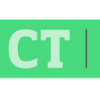This essay originally was published on April 29, 2021, with the email subject line CT No. 79: "The politics of software," alongside a review of Toggl Track project management software.
A preamble: From the small bits I've read, I'm sure that whatever happened at Basecamp was extremely inappropriate. No one deserves to feel unsafe or dismissed at work. Client and customer data should never be a source of mockery. But this is a newsletter about software and scale, operations and people, and getting things done. So:
Basecamp, hilariously, is the target of media and Twitter folk this week for communicating in a disorganized manner.*
As one of the original SaaS project management tools beloved by the early tech industry, many of us in the digital world have used Basecamp at some point. We all have our favorite Basecamp versions. I prefer Basecamp 2.
Basecamp has long been the low-cost project management (PM) software of choice for nonprofits and really small businesses. As a pre-Slack forum-style project management tool, Basecamp worked brilliantly for small teams who committed to neither waterfall nor agile processes, or processes at all, but somehow get the job done. Like Slack, it's always been great for asynchronous conversation and document sharing. It also had a kickass calendar feature that was retired/abandoned at some point, much to the ire of a PM friend.
That same PM friend, along with many other project managers I've met along the road, noted that Basecamp never seemed to have any software roadmap or process to determine which features would be launched. When seeing them speak at conferences, the Basecamp crew always seemed to be a little too chill, a little too impressed with themselves to be the kind of people you want managing your projects. No other tools had that reputation, so we'd joke: you could see Basecamp's laissez-faire ethos in its clusterfuck PM software.
Those project managers eventually decided Basecamp was never organized at all and wasn't very good at actually managing web development, marketing, or content projects. So they switched.
*Casey Newton's recap of the Basecamp story used the descriptor "enterprise software maker," which... no. According to LinkedIn, Basecamp has 100 employees, which makes it a small business. A very successful small business, but a small one nonetheless. Enterprise operations don't use Basecamp for project management, except maybe for notoriously cheap media companies? I also don't know why Newton is covering Basecamp in the newsletter Platformer because it's decidedly not a platform, but whatevs, Substackers gotta follow the Discourse to write a Daily, accuracy be damned. I stopped reading because the story outlines a pretty typical ham-handed DEI and ops failure story that doesn't need to be sensationalized. It's not that I think it's not important—accountability on diversity is critical! and Basecamp leadership fucked up—I just wish reporters like Casey would go after the far-worse mass media workplaces with the same teeth.
Project management is a delicate, fickle beast
As organized, people- and process-oriented professionals, these project managers did not just drop everything immediately and change everyone's workflow and style because they thought Basecamp was bad at business. I don't know that anyone was calling on their employers to ditch Basecamp as a PM tool this week (and I'm not going to waste my time Twitter searching), but I remember my more reactive days when I felt powerless at work. I would have been poisoned on Basecamp forever and probably complained too loudly that I didn't like them.
![Mr Darcy says, "My good opinion, once lost, is lost forever." [gif]](https://www.content-technologist.com/content/images/2021/04/VgpL.gif)
What I wouldn't have understood: PM software is an absolute bear to switch, and really, you shouldn't ditch any software products based on their CEO's bad behavior. Ditch-and-switch is an extremely bad practice for all software, especially in a collaborative environment. You may be readily adaptable to new tools, but many people aren't, and suddenly switching is one of the least inclusive actions you can take.
Companies that are successful using Basecamp should continue if it's working for operations and workflow. As a consultant, if I contract with a company that successfully uses Basecamp, I see that its style works for collaboration among that group of people. I'm not going to tell them why I hate Basecamp and why they are doing everything wrong. If it's working for them, I'm happy to adapt.

Particularly with project management software, do not fuck with what makes people feel good about getting their work done, man.
It takes time and effort to learn new project management systems. Inclusivity means understanding that everyone has a learning curve for new tech new systems, and that many small companies have gotten used to its embrace of organized chaos over the years. Burning it down has its time and place (police abolition, white supremacy, the stock market) but a making an example of a small no-coast SaaS company is hardly ending Big Tech, no matter how foolish the exec reaction seems.
10 tips for switching project management or content ops software, if you must
If you must switch your team's or company's software, here are a few guidelines to keep the process from annoying or destroying your entire team.
- Gather feedback from multiple stakeholders, particularly the people who are most productive and invested in the software. If you're switching CMS, ask the developers and the content creators. If you're shifting PM software, your project managers know best, but anyone who uses the software should have a chance to weigh in on why they like/dislike a system.
- Explore potential vendor partners' DEI practices before you buy. Ask them up front how they handle diversity. Vet them like an agency. Check out their LinkedIn pages and look at their staff. Also, don't get your hopes up that you're going to be aligned with a bunch of generous likeminded individuals. These are venture-backed software companies we are talking about. (But, y'know, I did put DEI as item number 2. It should be a major consideration.)
- Determine the features you want, then choose the software based on your needs and nice-to-haves.
- Always vet and compare your existing system to potential new systems. Everyone's got gripes about software, but more often than not the new features aren't worth ditching the old ones.
- You get what you pay for. If your preferred service is free or cheap, investigate what the trade-offs are.
- Pay for service, if you can. Devoted, well-paid human account managers are better than chatbots, especially if you're making a major transition.
- SaaS is a collaboration: look at the software roadmap. Make sure your vendor makes frequent updates and listen to customer requests.
- Make a gradual transition plan, if you can help it. I use a few styles of transition plans, which I'll write about one day.
- Talk to references from your vendor clients. Ask about their challenges, which are never evident in the sales process.
- Remember that no software is perfect, but some tools can be delightful.
If you think basecamp's bad wait til you hear about the Asana guy
— Deborah Carver (@fightwithknives) April 28, 2021
A coda for anyone similarly skeeved out by the whole vibe of the Basecamp pile-on
Media kerfuffles operate on characters and Great Man theories that are more suitable for entertainment than for daily life. Not everyone enjoys the so-called attention economy. A large percentage of American companies—whether in tech, media or any industry at all—are really really bad at politics and workplace culture. Dishy company culture stories may be necessary-ish for major change, particularly as the brokeass millennial generation enters middle age still powerless under our ultra-rich overlords. But always remember: it sucks to work at the company in the spotlight, even if you're an employee with already conflicted feelings about an awful exec team.**
**Been there, done that. Sucks every time.
Hand-picked related content

(Paid members only)







